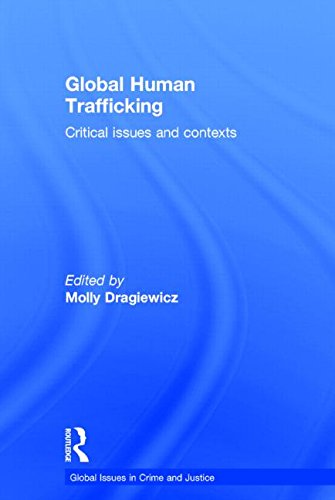

Most ebook files are in PDF format, so you can easily read them using various software such as Foxit Reader or directly on the Google Chrome browser.
Some ebook files are released by publishers in other formats such as .awz, .mobi, .epub, .fb2, etc. You may need to install specific software to read these formats on mobile/PC, such as Calibre.
Please read the tutorial at this link. https://ebooknice.com/page/post?id=faq
We offer FREE conversion to the popular formats you request; however, this may take some time. Therefore, right after payment, please email us, and we will try to provide the service as quickly as possible.
For some exceptional file formats or broken links (if any), please refrain from opening any disputes. Instead, email us first, and we will try to assist within a maximum of 6 hours.
EbookNice Team

Status:
Available4.8
33 reviewsHuman trafficking has moved from relative obscurity to a major area of research, policy and teaching over the past ten years. Research has sprung from criminology, public policy, women’s and gender studies, sociology, anthropology, and law, but has been somewhat hindered by the failure of scholars to engage beyond their own disciplines and favoured methodologies. Recent research has begun to improve efforts to understand the causes of the problem, the experiences of victims, policy efforts, and their consequences in specific cultural and historical contexts.
Global Human Trafficking: Critical issues and contexts foregrounds recent empirical work on human trafficking from an interdisciplinary, critical perspective. The collection includes classroom-friendly features, such as introductory chapters that provide essential background for understanding the trafficking literature, textboxes explaining key concepts, discussion questions for each chapter, and lists of additional resources, including films, websites, and additional readings for each chapter.
The authors include both eminent and emerging scholars from around the world, drawn from law, anthropology, criminology, sociology, cultural studies, and political science and the book will be useful for undergraduate and graduate courses in these areas, as well as for scholars interested in trafficking.